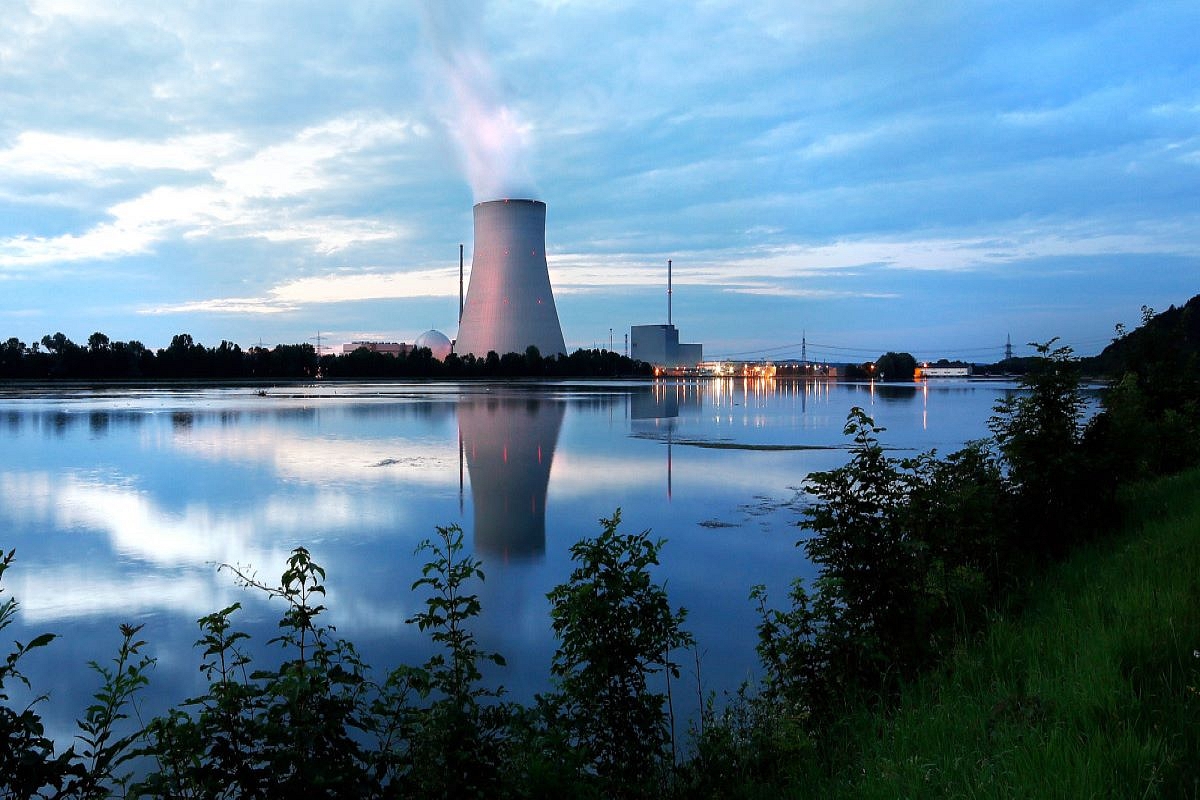News Brief
Centre In Talks With Five Private Players Including RIL, Adani And Vedanta For $26 Billion Investment In Nuclear Power Sector: Report

Nuclear Power Station (Representative Image)
India is set to open its nuclear energy sector to private investment, aiming to inject around $26 billion to enhance its clean energy output.
This marks a significant shift as it's the first instance of New Delhi seeking private sector participation in nuclear power, which currently accounts for less than 2 per cent of the nation's total electricity production.
The move is part of India's broader strategy to ensure that by 2030, half of its electric generation capacity comes from non-fossil fuel sources, an increase from the current 42 percent.
The government is in talks with at least five private firms including Reliance Industries, Tata Power, Adani Power and Vedanta Ltd to invest around 440 billion rupees ($5.30 billion) each, news agency Reuters reported citing sources directly involved in the matter.
The Department of Atomic Energy and the Nuclear Power Corp of India Ltd (NPCIL) have reportedly held several rounds of discussion with the private company in the past year.
With the investment, the government aims to expand India's nuclear power generation capacity by 11,000 megawatts by 2040.
NPCIL owns and operates India's current fleet of nuclear power plants, with a capacity of 7,500 MW, and has committed investments for another 1,300 MW.
Under the proposed plan, private firms will be responsible for the investments required for constructing the nuclear plants, including acquiring land and managing water resources, while NPCIL will retain control over the operation of the reactors and fuel management.
This arrangement allows private investors to profit from the electricity generated, with NPCIL operating the facilities for a fee.
The plan will reportedly not require any amendment to the India's Atomic Energy Act of 1962 but will need a final greenlight from the Department of Atomic Energy.
In India, private companies are currently barred from setting up nuclear power plants but are allowed to supply components, equipment and sign construction contracts for work outside of the reactors.
For years, New Delhi has fallen short of its goals for expanding nuclear power capacity, largely due to difficulties in securing nuclear fuel supplies.
However, in 2010, India managed to secure an agreement with the United States for the supplies of reprocessed nuclear fuel.
Additionally, India's strict nuclear liability laws have been a significant obstacle in negotiations with international nuclear power plant manufacturers like General Electric and Westinghouse.
In this backdrop, India has postponed its objective of increasing nuclear power by 2,000 MW, pushing this target from 2020 to 2030.
Support Swarajya's 50 Ground Reports Project & Sponsor A Story
Every general election Swarajya does a 50 ground reports project.
Aimed only at serious readers and those who appreciate the nuances of political undercurrents, the project provides a sense of India's electoral landscape. As you know, these reports are produced after considerable investment of travel, time and effort on the ground.
This time too we've kicked off the project in style and have covered over 30 constituencies already. If you're someone who appreciates such work and have enjoyed our coverage please consider sponsoring a ground report for just Rs 2999 to Rs 19,999 - it goes a long way in helping us produce more quality reportage.
You can also back this project by becoming a subscriber for as little as Rs 999 - so do click on this links and choose a plan that suits you and back us.
Click below to contribute.
Latest